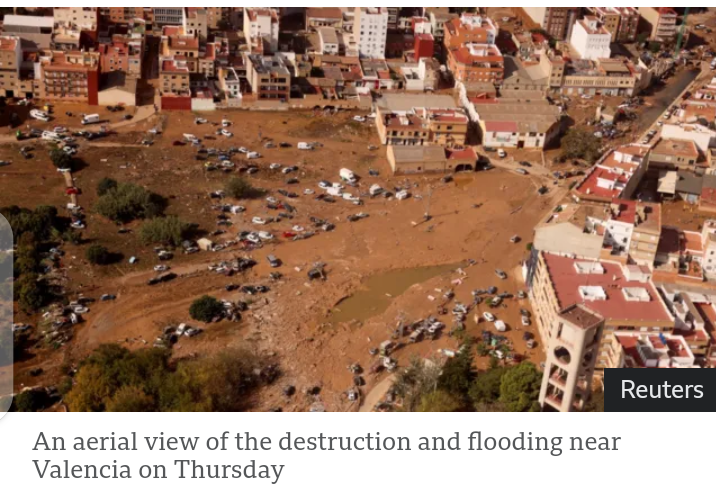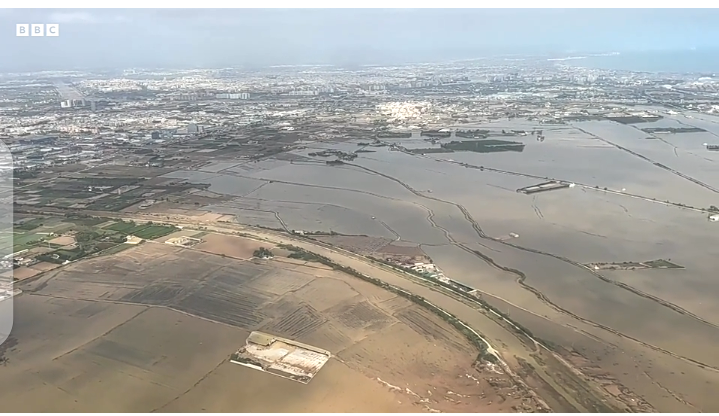Spain Mourns As Death Toll From Catastrophic Floods Exceeds 150.
Spain has been left in mourning as the death toll from devastating floods has risen to at least 158, marking the country’s deadliest flood disaster in decades. The flooding, which struck on Tuesday night, has forced Spanish emergency workers into a massive rescue operation, with over 1,200 personnel deployed, supported by drones, to locate survivors and retrieve the deceased.
Prime Minister Pedro Sánchez, visiting the stricken areas, emphasised the urgency of saving lives amidst ongoing rain threats. “The most important thing right now is to save as many lives as possible,” he said, offering solidarity with the affected communities. In some of the worst-hit areas, such as Paiporta in Valencia, residents have taken on the grim task of recovering bodies from thick mud and debris.
Valencia has borne the brunt of the floods, with at least 155 fatalities reported, alongside others in Castilla-La Mancha and Andalusia. In the town of Paiporta alone, over 40 lives were lost after a river burst its banks, submerging streets and businesses. Local pharmacist Miguel Guerrilla, whose shop has been left coated in mud, described the scene as a “nightmare,” saying, “We all know someone who has died.”
The floodwaters, which turned roads into rivers, trapped motorists, many of whom scrambled to safety by climbing trees and bridges. Officials remain uncertain about the exact number of missing persons but have confirmed that “many” are unaccounted for. On Wednesday alone, over 90 deaths were recorded as the extent of the disaster became evident.
According to Spain’s meteorological agency, Aemet, the town of Chiva near Valencia received a year’s worth of rainfall in just eight hours, with rain warnings continuing for southern and eastern regions. King Felipe VI has cautioned that the emergency is “still not over,” while Prime Minister Sánchez urged citizens to take shelter as necessary.
Across flood-hit areas, hundreds of people have sought refuge in temporary shelters as they begin the daunting task of cleaning and reclaiming their homes. Many families in the city of Jerez have been evacuated, with rain causing river levels to surge. Transportation remains severely affected, with major roads and the rail link between Valencia and other parts of Spain cut off.
A three-day national mourning period has been declared, with flags at half-mast and moments of silence observed across the country. Growing public anger has spurred questions over the timeliness of warnings issued by Spain’s civil protection agency, which reportedly only sent alerts hours after initial flooding had started. Officials have described the flooding as “unprecedented,” linking it to climate change and a natural weather phenomenon called “gota fría,” which brings cold air over warmer Mediterranean waters, intensifying rainfall.

Scientists, including Dr Friederike Otto from Imperial College London, have noted that global warming has likely exacerbated the situation by increasing the moisture in clouds, leading to these extreme downpours. “There’s no doubt these explosive downpours were intensified by climate change,” Dr Otto remarked.
The death toll from this disaster surpasses that of the severe floods in southeastern Spain in 1973, making it the nation’s most catastrophic flooding event in recent history.



